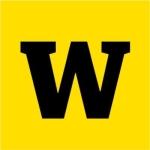A Chinese Response to Our Discriminatory Past
Poll tax - considered one of the more embarrassing episodes of New Zealand's early history - is one of the central themes of an upcoming exhibition by Mu Yu Ming at the Michael Fowler Centre.
Entitled Family Portraits: A Chinese Response, the exhibition will be opened by the Minister for Ethnic Affairs, Hon Pansy Wong.
Mayor Kerry Prendergast, who will also speak at the opening, says it is a pleasure to host the exhibition in Wellington.
"I know Mu has been in New Zealand for several months now and, by all accounts, his artworks have been something of a sensation nationwide. His reputation has certainly preceded him," says Mayor Prendergast.
While exploring the Chinese Poll Tax, Mu's exhibition also looks towards the future for not only China, but also for humankind. His paintings are rich in symbolism, colour and have an almost futuristic feel.
Motifs include images of early Chinese migrants to New Zealand in the late 1800s and early 1900s, animals on the brink of extinction like the panda bear, New Zealand birds, symbols such as the Ark, an unborn child in utero, and space-suited people standing on an unearthly terrain.
Mayor Prendergast says Mu's work shows the value of the Wellington Asia Residency Exchange, which is enabling his stay in the city.
"When Asian artists come here, and when Wellington artists travel to Asian cities, it's all about an exchange of ideas.
"These are challenging works which look at our history from a different perspective. I hope they encourage Wellingtonians to think about past attitudes - and how far we've come as a society since the days of the poll tax."
Introduced in 1881 to deter Chinese people from migrating to New Zealand, the discriminatory Chinese Poll Tax charged immigrants substantial sums to be allowed to arrive in the country. Similar restrictions were later applied to other Asian nationalities.
But today, artists like Mu Yu Ming receive funding for their travel / work here through the New Zealand Poll Tax Heritage Trust fund. It helped Mu to initiate the project in New Zealand, and the Wellington Asia Residency Exchange (WARE) programme has enabled him to further develop the project in Wellington, while staying at the Bolton Street Cottage. The WARE programme is a joint initiative between the Council and the Asia New Zealand Foundation.
Mu grew up in Lijiang in South China before heading off to Oslo to commence his studies in Fine Arts at the National Art Academy. Following that, he studied in Beijing at the Center Film Academy and then went on to take up several residencies, one of note being at the prestigious Rijks Art Academy in Amsterdam. Aside from dazzling international audiences with his work through exhibitions or residencies, he spends his time in Lijiang.
Family Portraits: A Chinese Response opens at 5.30pm on Friday 28 May at the Michael Fowler Centre.
